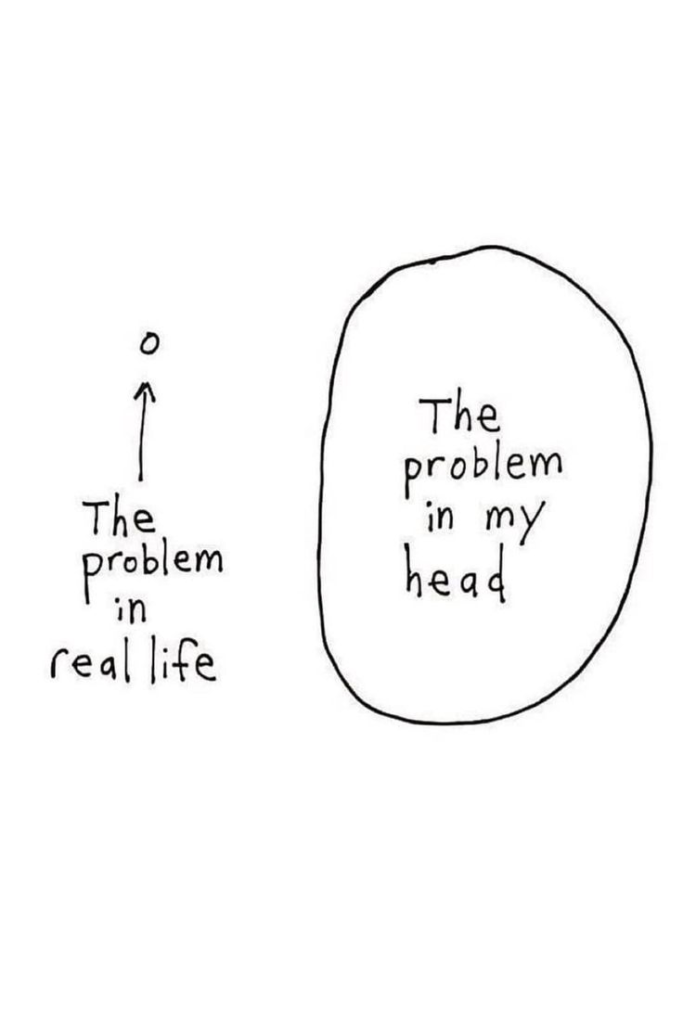-Albert Einstein
Arun was 16year old and studying in class 12. He was an intelligent boy and was quite clear about his career and aspirations in life. He judiciously used his time in academics and preparation for competitive exams were his top priority. From the last few months Arun was not feeling OK, fear of failure was gripping his mind, which was not letting him focus on his studies. There was a constant tussle of thoughts that were draining his energies. The direction of thoughts was only progressing in a downward spiral. He was experiencing mood swings, disturbed sleep, and poor appetite. His racing mind was never at peace, and it was now troubling his day-to-day life activities, the academic scores were falling, and the self-confidence was also sliding down. All this was disturbing. Too much thinking was generating negativity that was now gradually penetrating deep in his mind creating question marks and ‘What- if’ statements, like “If I do not score enough,” “if I fail?”. Before that never such thought came to him but now clouds of self- doubts mystified his mind. He was facing an elevated level of anxiety due to overthinking.

An overthinker tends to have a perfectionist personality and strives on unrealistic expectations critically analyse oneself with self- doubts. It is just like thought- fixing, weaving a story around and catastrophizing it. The spinning of these thoughts in this manner gives a feeling of losing control of a situation/event and is agonising.
Our thoughts are the food for our mind. Just like a nutritious and balanced diet is required for good physical health, similarly, healthy, or positive thoughts are necessary for sound mental health. Thoughts are are enormously powerful. They play a key role in shaping our personality and helps to develop our perspectives and evolve us into better beings. They have the potential to ruin happiness and small moments of joy from our present. According to one research we have around 50,000 thoughts in a day and proportionately they are positive and negative. Repeated thinking about an event or a situation tends to create a negative mindset which may eventually develop into fear, anxiety, sadness, or any other physical illness (e.g., muscular pains, stomach-ache, headache etc.); behaviourally it can result in troubled sleeping, restlessness, irritation etc.; cognitively the thoughts may be racing, overactivity, struggle with sharp inner critic, consistent negative thoughts about not being good enough, feeling of failure etc. A vicious cycle of questions, What-if’s, creates uncertainties and a self- critic that is hard to defy. It is thinking, thinking and thinking with no decision or action. Like in the case of Arun, one time exam score below his expectations caged a fear and an insecurity for future competitive exams after which all his energies moulded into a negative direction. Fears and worries took away his peace of mind and his efficiency. Overthinking has a significant impact on the quality of life in terms of work- life balance and relationships as well. At times one may tend to adopt unhealthy habits like substance abuse, gambling etc. to escape it and relax the overworking mind. It may also gradually develop into neurotic problems like OCD, panic attack etc.
Overthinking can be controlled if conscious and consistent efforts are made. This habit literally paralyses the mind (with fear and doubts) so to outdo it we need to be mindful. Staying in the present and with awareness choosing the thoughts that are helpful and productive. The second way to help oneself is by fixing a time slot in a day for all unproductive thoughts, instead of having them for the whole day one can choose a dedicated time for it. Journaling the thoughts also helps us to declutter the non-useful gloomy thoughts. It helps to give clarity and redirect the restless mind to the right direction. Lastly, spending time in nature and maintaining a distance from technology for some time in a day soothes the overdriving mind, releasing happy hormones and is calming.